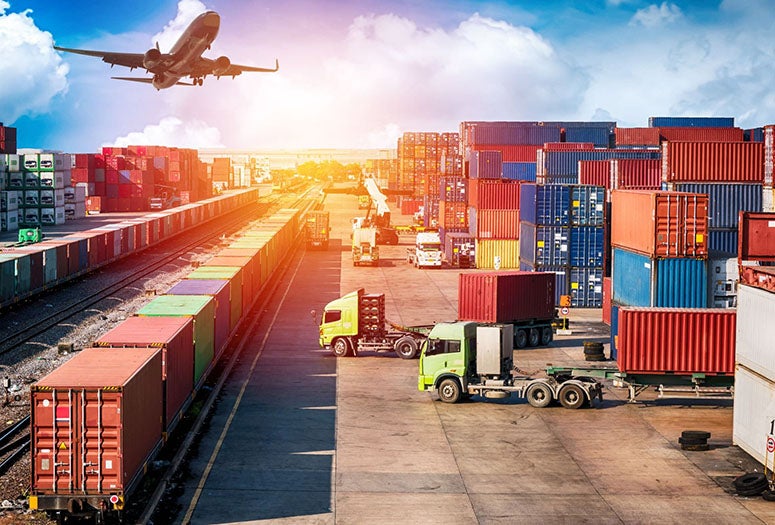By David Medina
The COVID-19 pandemic is wreaking havoc on trade between United States, Mexico and Canada, and the three countries must work together to recover from the slump, according to an economist at a panel discussion hosted by Rice's Baker Institute for Public Policy.
Given the countries' cooperation on production of goods, the comeback from the pandemic must be well coordinated, said Pia Orrenius, vice president and senior economist at the Federal Reserve Bank of Dallas, during a May 13 webinar hosted by the Center for the United States and Mexico at the Baker Institute and the U.S.-Mexico Foundation.
“We are completely dependent on each other on these supply chains,” said Orrenius, one of three speakers who participated in the one-hour event titled “The Effect of the Coronavirus Pandemic on the North American Supply Chain.” In addition, a sharp decline in oil prices has hurt the oil-producing regions of Texas and Mexico and worsened the economic woes, she said.
The policy response in the United States has been sweeping, Orrenius noted. For example, the Federal Reserve has been aggressive in “slamming down interest rates to lower the cost of borrowing” and supporting lending programs to businesses, she said.
Orrenius said she expects the U.S economy to bounce back in the third and fourth quarters of this year, but "year on year, we are still going to be down. We are not going to recover completely this year; this is something for next year.”
Mexico’s policy response has been limited. The Mexican economy was already hurting before the pandemic, she said, because it was shrinking at a “hefty pace” in the first quarter .
“They don’t have quite the fiscal firepower that the United States government has and so they are not going to have enough of (a) policy response to limit the hurt to businesses,” she said.
Emilio Cadena, president and CEO of management consulting firm Grupo Prodensa in Mexico, said the pandemic has taught us two lessons: how interconnected the world is and how little its governments understand the supply chain.
“It has never been more obvious how interconnected we are and why it is important we design policy that allows us to continue being interconnected,” he said. Trade and economics are being held hostage by politics, and governments are not working together to deal with the pandemic, he added.
“People say that life is not going to be the same after COVID-19,” Cadena said. “I think shame on us if it is the same. I think we have to learn from these lessons and make sure we do things differently.”
Flavio Volpe, president of Canada's Automotive Parts Manufacturers’ Association, agreed that governments are not working together to restart the economy.
“We cannot restart sustainably if the governments in the three countries are not aligned,” he said.
Each of the three countries' approach to containing the pandemic has been different. In Canada, he said, all industries — from suppliers to assemblers — are working closely to help in the recovery. The United States has been a patchwork, as individual states have different rules, and in Mexico the situation has been fluid.
“If you have trucks that need to go between the three countries, the only place you can predict how those people will be treated is in Canada,” he said. “That’s not good for Canada. It’s not good for the three countries.”

